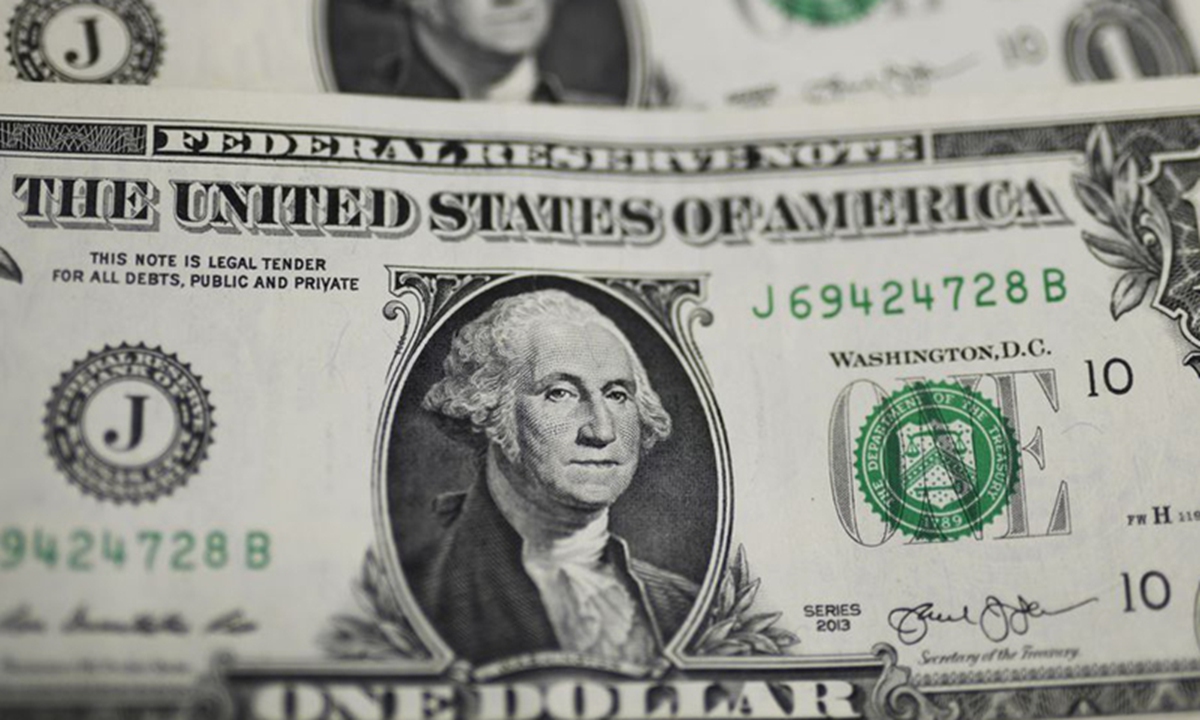
File photo:Xinhua
The Indian rupee dropped to as low as 80.06 per dollar on Tuesday, marking a new record low, as foreign investors reportedly sold nearly $30 billion of the nation's equities so far this year.The depreciation came at a time when the Fed's policy stance has strengthened the dollar more than many expected. The US dollar index, which measures the greenback against a basket of rival currencies, surged to a fresh 20-year high of around 108.29 last week.
India's policymakers have tried a raft of measures to defend its currency, as a weaker rupee may import more inflation into the country. India's inflation hit 7.01 percent in June, compared with 7.04 percent in May and 7.79 percent in April. But none of the measures seem to have worked to weather the impact of a stronger dollar.
India is not the only country that is facing currency depreciation pressure as a result of the Fed's aggressive monetary policy, something the world is now vigilant about. Former US treasury secretary John Connally said in 1971, "the dollar is our currency, but it's your problem." What was true then remains true today. Currencies of various countries, especially emerging market economies, are buffeted by massive foreign outflows in recent months, which could be extremely dangerous to the financial stability of any country.
The latest changes in the US debt holdings by China and Japan may give the impression that it has become a trend for countries to pare down their holdings of US debt that they are bearish about dollar-denominated assets.
China's holdings of US treasury securities dropped to $980.8 billion in May, falling below $1 trillion for the first time in 12 years, according to data released by the US Department of the Treasury.
Japan, the largest foreign holder of US treasuries, also saw its US debt holdings extend a continuous decline in May, falling to $1.212 trillion, the lowest since January 2020.
Yet, a closer look at the data may suggest the opposite. The US dollar-denominated assets may remain one of the world's safe-haven assets for some time to come. This is because even though China's total holdings of US treasury securities registered a decrease, in terms of monthly change, China actually increased its holdings of US long-term securities by $2.689 billion in May, according to data from the US Department of the Treasury.
While an overly strong dollar is exacerbating the financial risks facing emerging markets, the greenback remains the world's most important currency for trade settlement and a safe-haven for investors seeking security amid the changeable markets.
At present, the fact that a stronger dollar is exacerbating financial risks, inflation and other economic problems in various countries may only serve as a reminder that it may be more urgent than ever for countries to take de-dollarization measures such as currency swap and local currency settlement.
Since de-dollarization is unlikely to be achieved any time soon, it is more important for the world economy to pay attention to the debt problem in emerging market economies, which are often mired in heavy external debt.
In particular, the amount of short-term debt in emerging economies is currently colossal. For instance, India's external debt of around $267 billion, almost 40 percent of the total $621 billion, is due for repayments within this fiscal year, data from the Reserve Bank of India showed.
There were no short of crises caused by short-term debt in the past. It is short-term debt crisis that caused sharp currency depreciation in Thailand, precipitating the 1997 Asian financial crisis.
If the hawkish Fed policy continues to lure capital toward the US from other markets, these markets will suffer miserably from financial turmoil. And the next Sri Lanka may be just around the corner. The world needs to remain vigilant.


